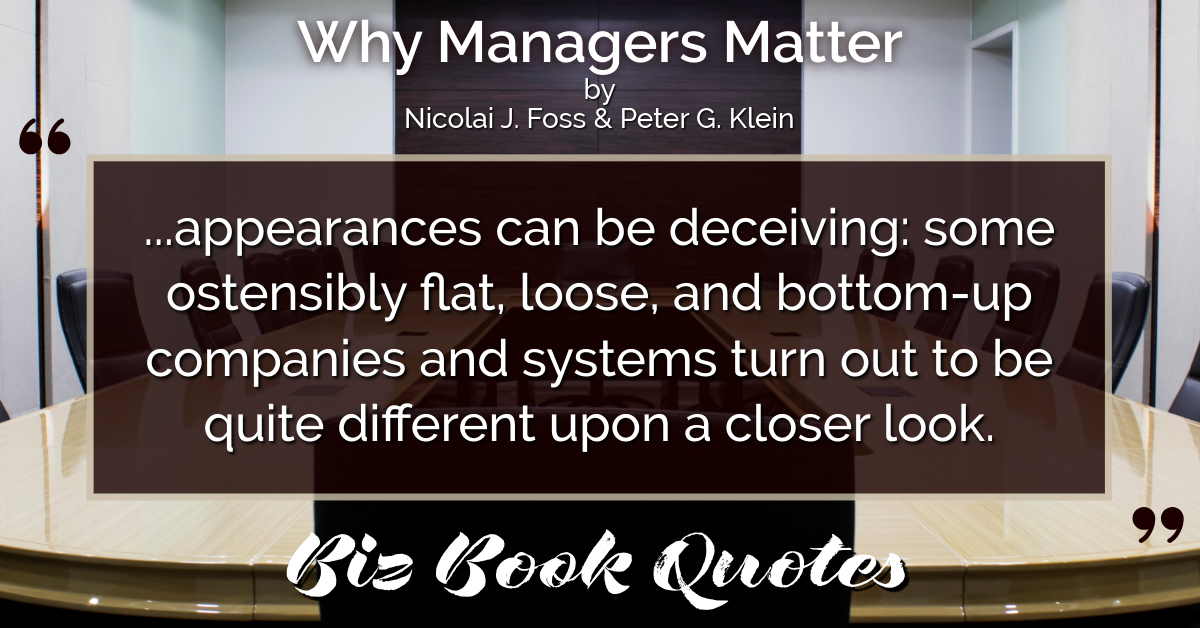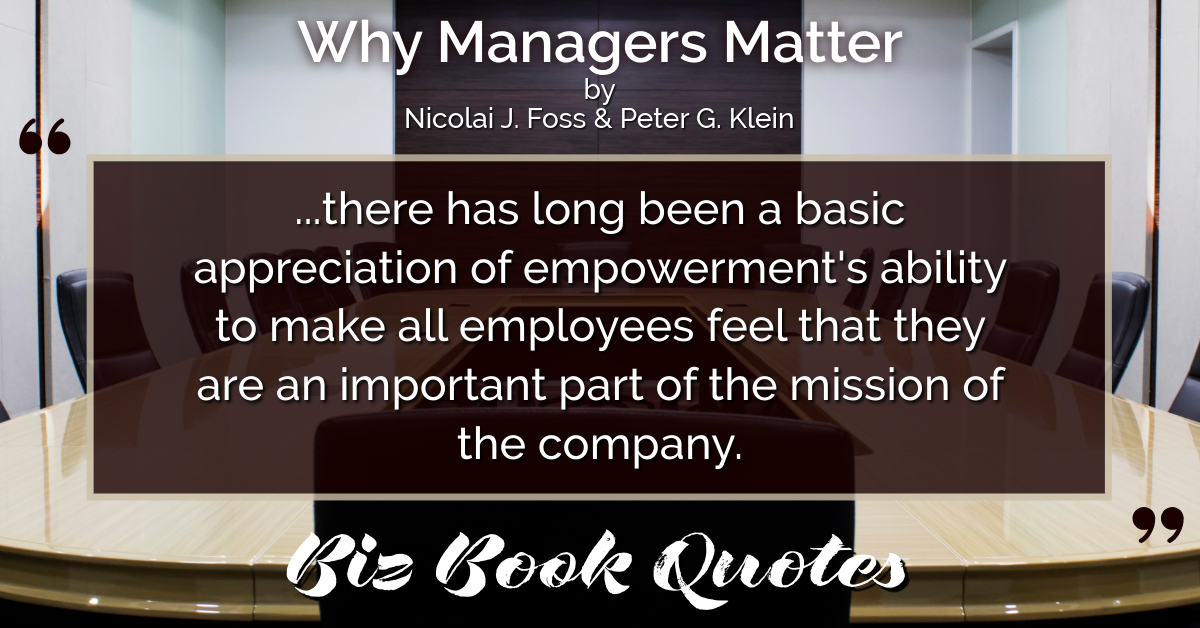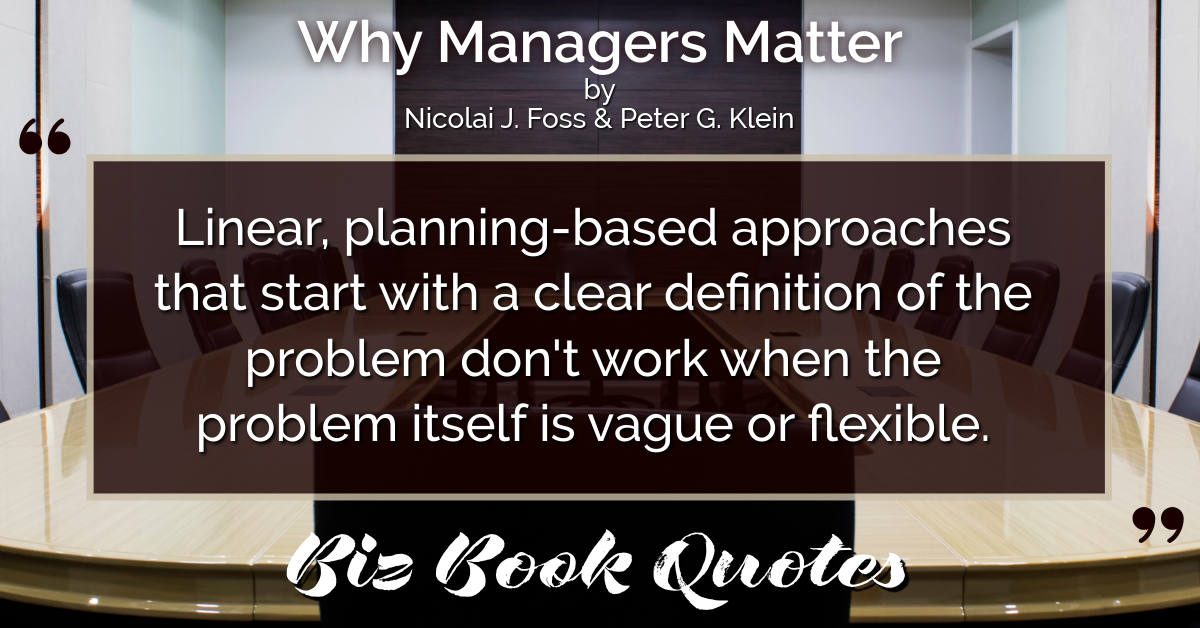|

|
Why Managers Matter:
In the absence of formal hierarchy, other authority relations… emerge to fill the void.
|
035 |
|

|
Why Managers Matter:
…appearances can be deceiving: some ostensibly flat, loose, and bottom-up companies and systems turn out to be quite different upon a closer look.
|
045 |
|

|
Why Managers Matter:
…successful organizational design is contingent on features of the product, market, and environment.
|
047 |
|

|
Why Managers Matter:
Siloing, turf wars, and the like are more easily avoided when teams are organized around projects – rather than on business functions such as marketing, sales, or finance.
|
057 |
|

|
Why Managers Matter:
…when it comes to organizational structure, there are no one-size-fits-all solutions.
|
059 |
|

|
Why Managers Matter:
…there has long been a basic appreciation of empowerment’s ability to make all employees feel that they are an important part of the mission of the company.
|
064 |
|

|
Why Managers Matter:
When, then, do so many people choose self-employment? Because they value the flexibility, autonomy, sense of fulfillment, and other nonmonetary benefits.
|
065 |
|

|
Why Managers Matter:
Embracing a new idea just because your competitors have adopted it can be a recipe for disaster.
|
068 |
|

|
Why Managers Matter:
Linear, planning-based approaches that start with a clear definition of the problem don’t work when the problem itself is vague or flexible.
|
074 |
|

|
Why Managers Matter:
Good bosses design systems and architecture, even those bosses who locate decision-making at lower levels of the organization.
|
085 |











